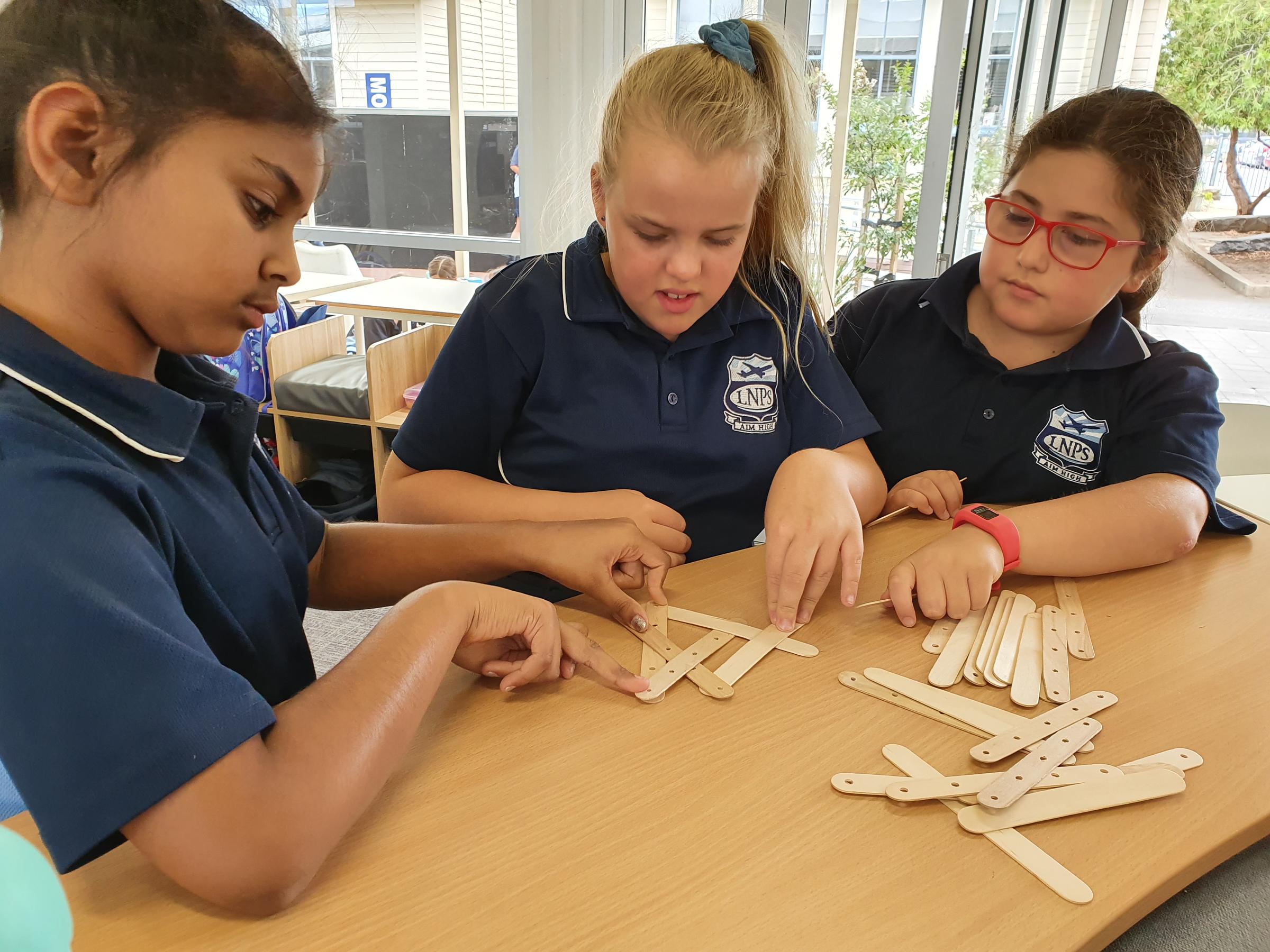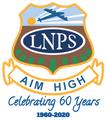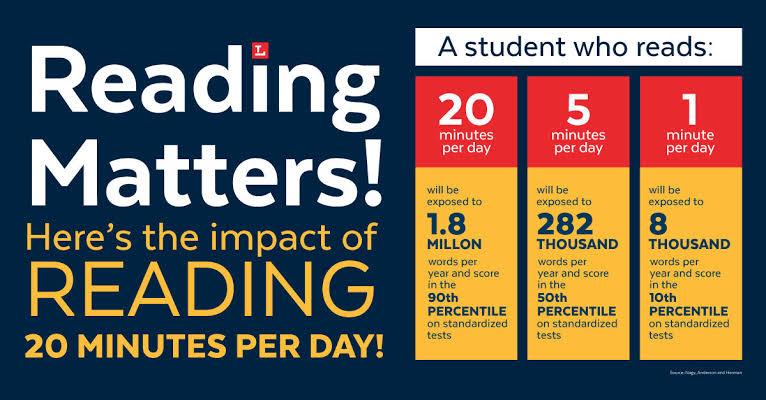Essential Learnings & Applications

English
The explicit teaching of English incorporates Writing, Vocabulary Development, Reading and Viewing as well as Listening and Speaking with the focus on learning how to use the English language to effectively communicate for a variety of purposes. Skills taught in English are also embedded across all other curriculum areas.
WRITING
Writing skills are addressed in multiple ways. As a text type is explored (e.g. persuasive), students develop knowledge and understanding of the structure, grammar and specific vocabulary required of that particular text type. The essential skills of writing (punctuation, sentence structure, vocabulary use and text control) will continue to be a focus during English blocks / workshops, with students then given the opportunity to apply their knowledge and communicate, through writing, in practical contexts. Students will also be reviewing various forms of texts and media throughout the year.
Proofreading and editing of written work is explicitly taught with a focus on punctuation and grammar. It is an expectation that students take greater ownership and responsibility for this as they near the end of their primary schooling. Timed Writing sessions provide students the opportunity to improve their skills by responding to a variety of prompts with foci on accurate sentence and text structure, and the selection of precise vocabulary.
VOCABULARY DEVELOPMENT AND SPELLING
Students work on developing strategies which writers need when working out how to spell words to enable them to become proficient spellers. These strategies include knowing what words mean, how they sound, how they change form and where words come from. These strategies are referred to as the Four Spelling Knowledges: Phonological, Visual, Morphemic and Etymological.
Students participate in targeted workshops, meeting their particular spelling needs, in which they inquire into words to find patterns and generalisations allowing them to develop strategies to spell and understand large numbers of words.
Through all subject areas, students focus on developing a broad vocabulary in order to be able to express themselves in a precise and, where appropriate, technical manner. Vocabulary development is vital to academic success.
READING
Reading comprehension strategies are developed to empower students to be successful across the curriculum. Students engage in many different reading activities in order to strengthen their abilities to comprehend and make connections to texts involving ‘HERE’, ‘HIDDEN’ and ‘HEAD’ information. As comprehension strategies improve, emphasis is placed on key skills of summarising and drawing conclusions. Opportunities to respond to literature are also provided through class novels, guided texts and personal texts.
LISTENING AND SPEAKING
Listening and speaking skills are developed through class participation, peer feedback, assembly presentations, Year 7 Graduate speeches and scheduled planned oral presentations. Students are supported to contribute their ideas and elaborate upon their thinking in order to justify their points. Students participate as active audience members by providing effective feedback to their peers. This aspect of our English curriculum is vital and although students may be nervous, it builds confidence and self belief so all students feel reassured and supported.
Mathematics
Learning Mathematics is an active process where students build their own mathematical understanding through interaction with the ideas they hold and alternative ideas held by others. Students will be encouraged and supported to take risks and will learn to persevere with new or different and more efficient ways of thinking and solving problems, and will understand that mistake making is an important part of their learning.
Students will continue to develop understanding of the algorithms for addition, subtraction, multiplication and division and will explore, and apply, a range of written and mental strategies for computation to solve multi-step problems with a focus on real-life applications for measuring lengths, heights and distances travelled as well as mass, capacity and volume.
Opportunities are provided to solidify and develop understanding of concepts related to place value, fractions, decimals, percentages and the representation and analysis of data. The way we programme learning ensures students have repeated opportunities to revisit concepts which supports those who need multiple exposure and repetition. Those who have mastered a concept have opportunities to apply and stretch their learning in a variety of ways.
Understanding, fluency, problem-solving and reasoning are an integral part of mathematics across the three content strands: number and algebra, measurement and geometry, and statistics and probability.
Understanding - the skills involved include making connections, comparing and ordering, describing and identifying.
Fluency - the skills involved include choice, selection and estimation.
Problem-solving - the skills involved include formulating questions and finding authentic problems.
Reasoning - the skills involved include investigation, interpretation, justifications and building onto own learning.
Although strategies that students use may be different to families methods of computation, it is important to value these differences and aim towards efficiency and to be able to justify why they chose a particular strategy.
Multi-Disciplinary Inquiries
In order to provide rich opportunities for our students to apply their learning in meaningful ways, Fisher students will be involved in many projects this semester which will see multiple subjects combined during inquiries. This will enable students to make links between their learning experiences and ensure their efforts have an impactful purpose.
All of our multidisciplinary inquiries will see students applying many literacy and numeracy skills and understandings in practical ways and will be designed to ensure all essential aspects of the curriculum are addressed. Many concepts will recur over the course of the year to ensure students have multiple exposures in order to embed new learning and apply it in new contexts.
Year 4/5
How Can We Tackle Waste?
As a consumer, it can be hard to even comprehend the vast quantities of waste that we produce on a daily basis. With a focus on sustainability, students will explore the environmental and ethical impacts, and what actions can be taken by our students, within the community and globally.
Our inquiries will be across all areas of learning, with an emphasis on Geography, Technologies and The Arts. In Science, students will be examining the properties of various materials used for a variety of purposes. This will include clothing and packaging among other materials. As plastic continues to replace glass and single use packaging becomes the norm, students will examine the impact on the environment and waste. Helpful alternatives will be explored, including their properties.
Year 5/6
How can we help to reduce water scarcity?
This semester students will engage in learning about water and sustainability and exploring solutions to the question, “How can we reduce water scarcity?”
The inquiry will incorporate many learning areas of the curriculum, with an emphasis on Biological and Earth and Space Sciences, as well as Geography. This will support students’ understanding of environmental and human impacts on the location and characteristics of local and global places. Multiple opportunities will be provided for students to embed new learning across a variety of contexts.
Learning experiences will be hands on, collaborative and involve students making connections into the effects of increasing human activity in accessing natural resources. Students will investigate changing ecosystems and sustainable practices required to support all life.
Year 6/7
Place and Liveability
Students will discuss factors that influence people’s perceptions of the liveability of places. They will investigate features and characteristics of places across a range of scales that support and enhance wellbeing such as community identity, environmental quality and access to services and facilities. Students will assess the liveability of places and propose strategies to enhance the liveability of a place in Australia. This unit will have strong links to English through the reading of our class novel Trash.
Water in the World
What effect does the uneven distribution of resources and services have on the lives of people?
What approaches can be used to improve the availability of resources and access to services?
Throughout this inquiry students will be developing questions, collecting information from reliable sources, organise, analyse and represent different information and data. They will know current environmental challenges and understand the impact of our actions. Our year 7 camp to the Yorke Peninsula aligns strongly to this unit.
Independent Inquiry
Students will cultivate curiosity and grow as confident, capable and creative thinkers through their own independent inquiry. They will grow as thinkers, collaborators, self-managers, communicators and researchers as they inquire, all whilst honing in on a topic that sparks excitement and engagement from them.
The Arts & Technologies
This year, Fisher students will take part in a range of Arts and Technologies - Dance, Music, Drama, Design and Technology, Media, Visual Arts and Digital Technologies. This is a great chance for students to try things they may have never done before, have some fun as well as develop new skills and abilities.
Health & PE
Students will receive one 50 minute Physical Education lesson and one 50 minute Health lesson each week. Our programme aims to develop students' knowledge, understanding and skills to create opportunities and take action to enhance their own and others' health, wellbeing, safety and physical activity participation.
The main areas of focus during Health programmes are:
BEING HEALTHY, SAFE AND ACTIVE
COMMUNICATING AND INTERACTING FOR HEALTH AND WELLBEING
CONTRIBUTING TO HEALTHY AND ACTIVE COMMUNITIES
Students will be investigating and selecting strategies to promote health, safety and wellbeing. They will explore concepts of identity, values and choices to understand how they impact on and contribute to overall wellbeing. Concepts will be explored through topics around nutrition, mental health and physical activity.
The main areas of focus during Physical Education lessons will be:
LEARNING THROUGH MOVEMENT
UNDERSTANDING MOVEMENT
MOVING OUR BODY
Students will be engaged in a broad range of physical education activities. They will learn about the importance of good sportsmanship, teamwork and develop skills to play individual and team sports.
In the second half of Term One, lessons will have an athletics focus, in preparation for our School Sports Day.
From time to time additional sporting clinics will be conducted by visiting specialist sports development officers.
Students will be notified of any upcoming SAPSASA events or trials by Mr Starr, Ms Patterson and Mr Smith. Students will be provided with relevant documentation if interested in participating. These documents will be placed on the (Fisher Chatter Google Classroom) for all Fisher students have access to this.
SAPSASA SPORTS TERM 1
Airport Boys SAPSASA Cricket Trials
The State SAPSASA Cricket carnival will be held in Term 1 March 16th- March 19th 2020.
If you would like to trial for the Airport cricket team you need to complete the form below and bring it out to the first training.
Eligible selection criteria:
· In year 6 or 7.
· Approximate cost to participate in the State carnival if selected will be $130
· Students must attend at least 2 of the 3 trials to be eligible for selection.
Venue: Henley Grange Memorial Oval, White St, Henley Beach.
Date-1st Trial Week 3 Tuesday 4.00pm - 5.00pm
2nd Trial Week 4 Tuesday 18th September 4.00pm-5.00pm
3rd Trial Week 5 Tuesday 25th September 4.00pm- 5.00pm
Students will be notified of team selection and future trainings before carnival.
Airport Coach: Mark Harrity M 0419 817 701 Manager- Kirsty Crouch
Please bring: cricket gear, hat and drink bottle
Airport Boys SAPSASA Tennis Trials
The State SAPSASA tennis carnival will be held in Term 1 from 16th March - 19th March 2020.
If you would like to trial for the Airport tennis team you need to complete the form below and email it to me no later than FRIDAY 7th February: klampard@adam.com.au
Eligible selection criteria:
· In year 6 or 7.
· Approximate cost to participate in the State carnival if selected will be $130
· Students must attend at least 2 of the 3 trials to be eligible for selection.
Venue: Henley South Tennis Courts (Lexington Road. Henley Beach South)
Date-1st trial Wednesday 12th February 4.15pm - 5.30pm
2nd trial Wednesday 19th February 4.15pm – 5.30pm
3rd trial Wednesday 26th February 4.15pm – 5.30pm (team selected on this night)
Selected team training , 4th & 11th March 4.15pm – 5.30pm
Airport Coach: Adrian Martin Mob- 0438 642 712
Please bring: tennis racquet, hat, drink bottle

